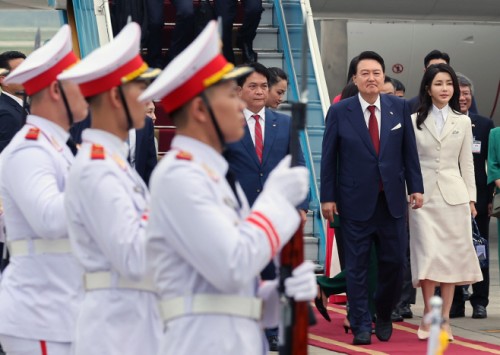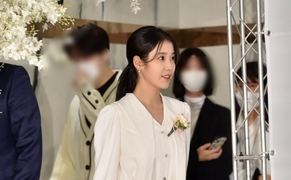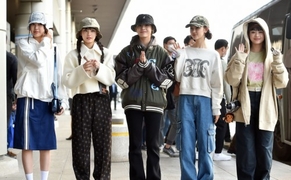 |
| South Korean President Yoon Suk-yeol and first lady Kim Keon-hee disembark Air Force One at Noi Bai International Airport in Hanoi, Vietnam, for a state visit on June 22, 2023. / Source: Yonhap |
AsiaToday reporter Park Ji-sook
South Korean President Yoon Suk-yeol arrived in Hanoi on Thursday for a three-day state visit at the invitation of Vietnamese President Vo Van Thuong. In a written interview with state-run Vietnam News Agency (VNA) on Wednesday, Yoon put emphasis on the following - maritime security, defense cooperation, and future orientation.
Yoon’s state visit came after South Korea and Vietnam upgraded bilateral relations to a “comprehensive strategic partnership” on the occasion of the 30th anniversary of diplomatic ties last year. “Over the three decades, our two countries have built an exemplary, mutually beneficial partnership on all fronts,” Yoon said during the interview. “(The upgraded relations demonstrate how committed our two countries’ governments and peoples are to solidarity, broadening the scope of cooperation and deepening bilateral exchanges.”
Through strengthening security cooperation with Vietnam, Yoon stressed that South Korea would make efforts to ensure that a “rules-based order will be able to take firm root in the Indo-Pacific region.” Yoon said South Korea would continue cooperation with Vietnam in maritime security sector, hoping that “cooperation in the defense industry will be further expanded based on the RoK’s technological prowess which has a proven track record in the global market.”
There have been steady voices calling for the need to expand security and defense cooperation with Vietnam, a key country whose presence is increasing politically, economically, and militarily amid the hegemony competition between the U.S. and China. During the Hanoi visit, defense cooperation will be dealt with as a major agenda between the leaders of the two countries. The industry is also expecting that the visit will open the door to the Vietnamese defense market, which has been centered on China and Russia.
Yoon said he will further strengthen future-oriented cooperation so that the two countries can prosper together. He said he will continue to support VKIST, or the Vietnam-Korea Institute of Science and Technology, so it can establish itself as “Vietnam’s center for scientific and technological development.” In particular, he said a new grant aid project will be announced on the occasion of his state visit to help Vietnam bolster its ability to conduct research in the fields of science and technology.
He called for the need to further deepen and expand the extent of the primarily manufacturing-focused bilateral cooperation into finance, the retail industry, IT, cultural content and other service sectors, and aim for a horizontal division of labor, playing off each other’s strengths. He also stressed the need to “work together for such future agendas as carbon neutrality by 2050 and the digital transformation.” Yoon added that he will systematically support active human exchanges between the two countries.
Yoon also said the RoK will expand substantive cooperation with ASEAN in such future-oriented fields as digital transformation, climate change responses and healthcare and medical services. It will also expand strategic cooperation in area of mutual interest between the RoK and ASEAN. He also stressed close cooperation with Vietnam in the RoK’s key foreign policies, including the Global Pivotal State (GPS) vision and Korea-ASEAN Solidarity Initiative (KASI), and more.
#Yoon Suk-yeol #Vietnam #state visit #maritime security #defense
Copyright by Asiatoday
Most Read
-
1
-
2
-
3
-
4
-
5
-
6
-
7





















